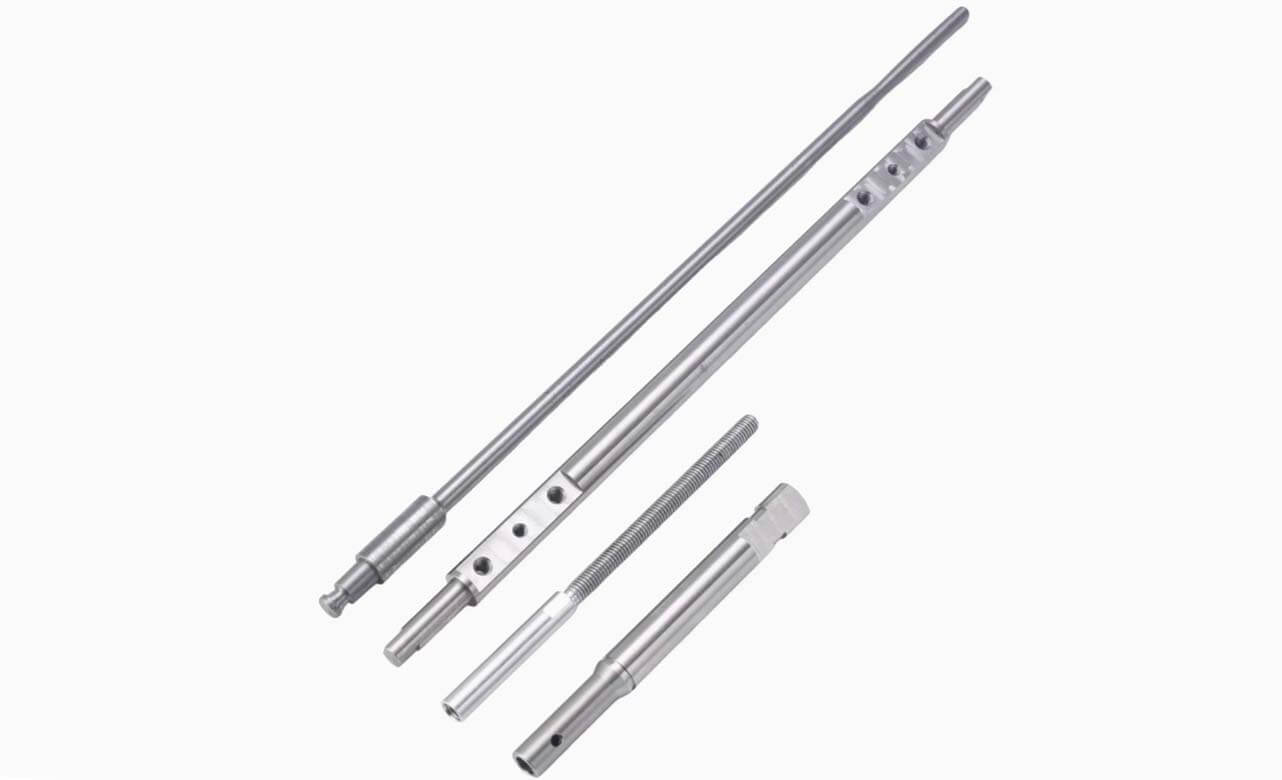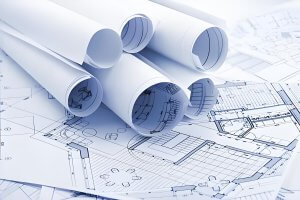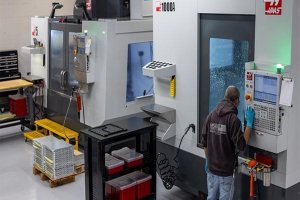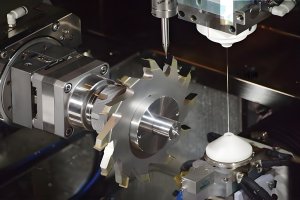The Importance of Customizing Motor Shafts for Precision and Efficiency
Motor shafts are the heart of any machine that involves rotation. They are used in applications ranging from electric motors, gearboxes, and turbines, to conveyors and automotive drives. Their primary role is to transmit torque from one part of the machine to another, enabling smooth, continuous operation. Over time, industries such as automotive, aerospace, robotics, and manufacturing have experienced an increasing demand for custom motor shafts.
Customization is essential because motor shafts need to meet specific performance criteria, depending on the application. Whether it’s for high torque in automotive engines or for lightweight precision in robotics, CNC machining offers unparalleled flexibility, precision, and efficiency in motor shaft production. In my experience, the need for customization has never been greater, and the ability to create motor shafts that meet these diverse needs is what sets CNC machining apart as the best option for the job.
What is a Motor Shaft and Why is Customization Important?
A motor shaft is a cylindrical component in any mechanical system that converts energy into rotational motion. The motor shaft transfers torque from the motor to other parts of the system, such as gears or pulleys, making it essential for smooth and efficient operation. In simple terms, without a properly designed motor shaft, the motor’s power cannot be effectively used, and the system will fail to perform as intended.
Customization is crucial because motor shafts are rarely “one-size-fits-all.” Each application has unique requirements based on factors like load, rotational speed, and environmental conditions. For example, motor shafts used in high-speed machines need to be perfectly balanced to avoid vibrations that could cause damage. On the other hand, shafts used in harsh conditions, like outdoor environments, might need materials that are resistant to corrosion. Custom motor shafts help address these varied needs and improve overall machine performance.
My personal experience working with manufacturers who specialize in motor shaft customization has revealed that slight adjustments—whether in materials, dimensions, or added features—can significantly impact performance and longevity. CNC machining allows for these adjustments with extreme precision, ensuring each motor shaft is tailored for its specific function.
Key Benefits of CNC Machining for Motor Shaft Customization
CNC machining (Computer Numerical Control machining) has revolutionized the manufacturing industry, and motor shaft customization is no exception. This technology allows manufacturers to produce motor shafts with exceptional precision, speed, and efficiency. In this chapter, we will explore the numerous benefits of CNC machining when applied to motor shaft production, and why it has become the go-to choice for motor shaft customization.
1. Precision and Accuracy
One of the key advantages of CNC machining is its precision and ability to maintain tight tolerances, which is critical for motor shaft customization. Motor shafts must fit into intricate systems where even a slight deviation can cause significant operational failures. CNC machines are controlled by computer software, allowing manufacturers to cut motor shafts with micron-level precision, ensuring that each shaft is made to the exact specifications required for optimal performance.
Theoretical Insights:
CNC machining is powered by numerical control systems that guide machines with a high degree of accuracy, using algorithms to determine movement. This allows the machines to create highly complex geometries that are impossible to achieve with traditional machining methods.
- Tolerances and Fits: CNC machines can achieve tolerances as small as 0.001 mm, which is crucial for high-performance motor shafts. Such precision ensures that the shaft fits perfectly with other components, preventing issues like misalignment and vibration in the system.
- Repeatability: CNC machining ensures that each motor shaft produced is identical to the last, which is essential for mass production runs or when producing multiple custom motor shafts for the same project.
2. Design Flexibility
CNC machining offers unmatched flexibility when it comes to design. Motor shafts are required to meet diverse application needs, whether it’s for high-speed rotation, heavy-duty torque transmission, or lightweight designs for specific industries like robotics or aerospace. CNC machines can handle a variety of materials and geometries, providing complete freedom in customizing motor shafts to meet these specific requirements.
Data and Case Studies:
A case study from a leading CNC manufacturer demonstrated that when customizing motor shafts for the automotive industry, the design flexibility of CNC machining allowed engineers to optimize shaft weight and material strength, reducing the overall weight by 10% while maintaining the shaft’s strength and durability.
- Material Variety: CNC machines are capable of working with an array of materials including stainless steel, carbon steel, aluminum, titanium, and even composites. This is particularly important as different industries require specific material properties like corrosion resistance or high tensile strength.
3. Enhanced Efficiency and Time Savings
CNC machining offers significant time savings compared to traditional manufacturing methods. While traditional methods like manual machining or casting may require multiple stages and manual interventions, CNC machining is an automated process that reduces the need for human involvement, speeding up production and minimizing errors.
Example Case:
In a real-world example, a CNC machining company reduced the production time of custom motor shafts for a robotics application by 30%, enabling quicker turnarounds for clients. The automated nature of CNC machining allowed for faster setup times and reduced production errors.
- Reduced Labor Costs: Since CNC machines can operate with minimal supervision, companies can save on labor costs, which makes CNC machining particularly attractive for large-scale production runs.
- Increased Throughput: CNC machines are capable of running 24/7, which significantly increases production capacity without the need for downtime, thus enhancing overall productivity.
4. Consistency and Quality Control
Another important benefit of CNC machining for motor shafts is the consistency it provides. Traditional methods of manufacturing often involve more manual processes, which can result in human errors and inconsistencies. CNC machining, however, is fully automated, ensuring that each motor shaft produced is identical to the last one. This level of consistency is particularly valuable for industries where quality and reliability are paramount, such as aerospace, medical devices, and high-end automotive parts.
Theoretical Insights:
CNC machines are programmed to follow specific instructions down to the finest detail. This minimizes variability and ensures that the final product meets stringent quality standards. Moreover, CNC machining allows for real-time monitoring, so any anomalies can be detected and corrected before they become an issue.
CNC Machining vs Traditional Manufacturing Methods for Motor Shafts
In the quest to produce high-quality, customized motor shafts, manufacturers must choose between different production methods. Traditional manufacturing methods, such as manual machining, casting, or forging, have been staples in the industry for many years. However, CNC machining has emerged as a superior option for a variety of reasons. In this chapter, we will compare CNC machining with traditional methods, highlighting the strengths and limitations of each.
1. Accuracy and Precision
Traditional Methods:
Traditional manufacturing methods such as manual machining and casting rely heavily on human intervention. While skilled machinists can produce high-quality motor shafts, the process is prone to errors. Manual machining requires constant adjustments, and even the most skilled workers cannot achieve the same level of precision as a CNC machine.
CNC Machining:
CNC machines, on the other hand, are computer-controlled, eliminating human error and ensuring consistency across production runs. With CNC machining, tolerances of 0.001 mm are achievable, which is far superior to the accuracy possible with traditional manual methods.
Data Comparison:
In a study comparing CNC machining with traditional methods for producing motor shafts, CNC machines achieved a 40% improvement in tolerance consistency. For motor shafts, this was particularly important, as even small discrepancies can lead to failure in critical applications.
2. Production Speed and Efficiency
Traditional Methods:
Traditional methods like forging and casting typically involve multiple stages, including molding, heating, and cooling, which can be time-consuming. Additionally, manual operations often result in slower production speeds and more downtime due to the need for rework or adjustments.
CNC Machining:
With CNC machining, the process is automated, and once the machine is set up, it can run continuously with minimal downtime. This increases production speed and reduces lead times, which is particularly important for industries with tight schedules, like automotive or aerospace manufacturing.
Case Study:
A manufacturer producing motor shafts for an automotive supplier found that CNC machining reduced their production lead time by 50%, compared to traditional casting methods, allowing them to meet demanding deadlines more effectively.
3. Material Waste and Cost Efficiency
Traditional Methods:
Casting and forging processes often result in higher material waste due to excess material being shaved off or left unused. Additionally, these methods can involve complex tooling and high setup costs, particularly for custom or small-batch runs.
CNC Machining:
CNC machining, being a subtractive process, uses material more efficiently. It allows for precise cuts that minimize waste, which is particularly beneficial when working with expensive materials like titanium or high-performance alloys. Moreover, the setup costs for CNC machining can be more economical for custom batches, especially when using advanced CNC lathes or mills.
Data and Case Study:
A report from a leading CNC machining provider showed that using CNC machining resulted in 20% less material waste compared to casting methods, which is particularly important when working with high-cost materials like aerospace-grade alloys.
4. Flexibility and Design Complexity
Traditional Methods:
Manual machining methods often require modifications to tooling and setup for each new design. This limits the ability to quickly adapt to new designs or create parts with complex geometries.
CNC Machining:
CNC machining, in contrast, allows for high design flexibility. Complex geometries, intricate patterns, and features such as grooves, threads, and slots can be incorporated into the motor shaft with relative ease. The ability to modify designs quickly via software also reduces time-to-market for customized motor shafts.
Example Case:
A company designing motor shafts for a high-performance electric vehicle used CNC machining to create custom geometries that reduced the shaft’s weight by 15%, improving overall energy efficiency.
5. Labor and Setup Costs
Traditional Methods:
Manual machining requires skilled labor to operate machines and tools, which can be costly, especially for small or custom runs. Additionally, traditional methods may require specialized tooling, which adds to the setup costs.
CNC Machining:
CNC machining requires less labor and has lower ongoing operational costs. While the initial setup of a CNC machine may be higher, the long-term savings in labor, tooling, and material waste make it a cost-effective solution for both small and large production runs.
Choosing the Right CNC Machining Service for Your Motor Shaft Needs
Choosing the right CNC machining service provider for motor shaft production is essential for achieving high-quality results. Here are some important factors to consider:
1. Experience with Motor Shaft Production
Look for CNC machining providers who specialize in motor shaft production. Experienced manufacturers will understand the nuances of working with different materials, tolerances, and shaft geometries. For example, when I worked with a client in the automotive industry, they required motor shafts with very tight tolerances. The supplier’s experience with high-precision machining ensured the project’s success.
2. Access to Advanced Equipment
Ensure the CNC service provider uses state-of-the-art machines capable of handling the specific requirements of motor shaft production. Multi-axis CNC mills, CNC lathes, and CNC grinders are often necessary to achieve the precision and complexity required for motor shafts.
3. Material Options
Motor shafts are made from a wide range of materials, including steel, titanium, and various alloys. Make sure the CNC machining service you choose has access to these materials and understands how to work with them to achieve optimal performance.
In my experience, selecting the right service provider can make a world of difference in terms of both quality and cost-effectiveness. It’s not just about the ability to machine a part—it’s about the supplier’s understanding of the specific challenges that come with motor shaft production.
Applications of Custom Motor Shafts in Various Industries
Motor shafts are used in nearly every industry where mechanical power needs to be transmitted, from robotics and aerospace to manufacturing and automotive. Below are a few key applications of customized motor shafts:
1. Automotive Industry
In automotive systems, motor shafts are critical for transferring power from the engine to other moving components like wheels and gearboxes. Custom motor shafts are required to meet specific torque, weight, and durability requirements. For example, in electric vehicles (EVs), motor shafts are designed to withstand high torque while minimizing weight to increase efficiency.
2. Robotics
In robotics, precision is key. Motor shafts in robotic systems must be highly accurate to ensure smooth operation of the joints and actuators. Custom motor shafts are essential to meet the specific needs of the robotic systems, particularly when it comes to weight and precision.
3. Aerospace
Aerospace applications require motor shafts that can handle extreme conditions, such as high temperatures and varying pressures. In this industry, the material and design of the motor shaft are crucial to ensure reliability and safety in demanding environments.
Conclusion: Why CNC Machining is the Best Choice for Motor Shaft Customization
From my experience, CNC machining stands out as the best option for motor shaft customization. The flexibility, precision, and ability to work with a wide range of materials make it the go-to choice for industries that require customized motor shafts. CNC machining allows manufacturers to meet tight tolerances, produce complex geometries, and adapt to changing design specifications—all while ensuring high quality and efficiency.
For anyone looking to produce custom motor shafts for their specific needs, CNC machining provides the optimal balance of performance, cost-effectiveness, and customization. Whether you’re in the automotive, aerospace, or robotics industry, CNC machining is the future of motor shaft production.
FAQ
1. What is a motor shaft?
A motor shaft is a rotating component that transmits torque from a motor to other parts of a mechanical system. It’s a central part of the motor, allowing power to flow smoothly and efficiently to components like gears, pulleys, or other mechanical devices. Motor shafts are critical in almost every type of motor, including those in automotive engines, industrial machines, and robotics.
2. Why is customization necessary for motor shafts?
Customization of motor shafts is necessary to meet the specific requirements of different applications. Factors like the shaft’s size, material, surface finish, and load capacity must be tailored to the motor’s performance needs. CNC machining offers the precision required for custom designs, ensuring that each motor shaft can handle its intended load, operate within tolerance limits, and integrate seamlessly into its respective system.
3. How does CNC machining contribute to motor shaft customization?
CNC (Computer Numerical Control) machining allows for the precise cutting, drilling, turning, and shaping of motor shafts according to detailed designs. With CNC machining, manufacturers can create motor shafts with tight tolerances and complex geometries, which are crucial for achieving optimal performance in applications that require high precision, such as aerospace, automotive, and robotics.
4. What materials are commonly used for motor shafts?
Motor shafts can be made from a variety of materials, depending on the application. Common materials include:
- Stainless Steel: Offers corrosion resistance and is used for general-purpose shafts.
- Carbon Steel: Used for shafts requiring high strength and hardness.
- Alloy Steel: Provides increased strength and wear resistance, ideal for heavy-duty applications.
- Titanium: Used in lightweight and high-performance applications, especially in aerospace.
- Brass or Copper: Occasionally used for specific electrical or corrosion-resistant needs.
5. How do I choose the right material for my motor shaft?
Choosing the right material depends on several factors, including the mechanical properties required for your application. Considerations like strength, hardness, weight, corrosion resistance, and cost must all be taken into account. For example, stainless steel may be a great choice for corrosion resistance, while alloy steel could be better for heavy-duty industrial use. Consulting with a CNC machining expert can help ensure you make the right material selection based on your specific needs.
6. What industries use custom motor shafts?
Custom motor shafts are essential across many industries, including:
- Automotive: For engines, transmissions, and various drive systems.
- Aerospace: For high-precision applications such as turbines and landing gear mechanisms.
- Industrial Manufacturing: Used in machinery, conveyors, and robots.
- Robotics: For precise movement in robotics arms and actuators.
- Medical Equipment: For precision-driven devices like pumps and diagnostic machines.
7. How does CNC machining ensure precision in motor shaft production?
CNC machining ensures precision by using advanced computer-controlled tools that follow exact instructions to mill, turn, or drill motor shafts. This process allows for extremely tight tolerances, ensuring the motor shaft fits perfectly within the system and functions as intended. In my experience, CNC machining is the only way to achieve the level of accuracy needed for high-performance motor shafts in industries like aerospace or automotive, where even the smallest deviation can lead to failure.
8. What are the common challenges in manufacturing motor shafts?
Some of the common challenges include:
- Material Selection: Choosing the right material to withstand the operating conditions.
- Tolerances: Ensuring the shaft dimensions are precise enough to fit within other components.
- Surface Finish: Achieving the right surface finish to prevent wear and tear.
- Complex Geometries: Manufacturing shafts with intricate designs or unique features.
- Heat Treatment: Properly heat treating the motor shaft to enhance its mechanical properties, such as hardness and strength.
9. What is the typical lead time for custom motor shaft production?
Lead time for motor shaft production can vary based on factors such as complexity, material availability, and order quantity. However, CNC machining typically provides faster turnaround times compared to traditional machining methods. Custom motor shafts can often be produced in a few days to a few weeks, depending on the specific requirements and the service provider’s capacity.
10. How do I ensure the quality of my custom motor shaft?
To ensure the quality of a custom motor shaft, it’s important to:
- Choose a CNC machining provider with a proven track record of producing high-quality components.
- Work closely with the manufacturer to discuss the material selection, design, and tolerances.
- Request inspection reports or certification of the final product to confirm it meets the specified standards.
- Consider adding additional testing or quality assurance steps, such as stress testing or dimensional verification.
11. What is the cost of customizing a motor shaft?
The cost of custom motor shafts varies widely depending on factors like material choice, design complexity, and production quantity. For small-volume or highly specialized shafts, the cost per unit may be higher due to the precision required in machining and the materials used. However, CNC machining offers cost-effective solutions for medium to large-scale production, particularly when complex or intricate designs are needed. It’s best to request a quote from your CNC machining service provider to get a more accurate cost estimate.
12. Can CNC machining be used for high-volume motor shaft production?
Yes, CNC machining can be an excellent choice for high-volume motor shaft production. Once the design is finalized, CNC machines can repeat the same process many times with consistent accuracy and quality. Additionally, automated CNC machines and advanced manufacturing techniques, such as multi-axis machining, can further increase efficiency and reduce production costs for high-volume runs.
13. How do I know if CNC machining is the right choice for my motor shaft production?
If you require high precision, tight tolerances, and custom designs that cannot be easily produced with traditional machining methods, CNC machining is the best choice. If your motor shaft design is complex, requires specific material properties, or needs to meet high-performance standards (such as in aerospace or medical applications), CNC machining offers the flexibility and accuracy necessary to achieve these goals.
Other Articles You Might Enjoy
- What is a CV Shaft and How CNC Machining Enhances Its Production
Introduction to the CV Shaft A CV Shaft (Constant Velocity Shaft) is a critical component in the drivetrain of many vehicles, especially in front-wheel drive (FWD) and all-wheel drive (AWD)…
- What is a Steering Shaft and How Does CNC Technology Improve Its Manufacturing
Introduction: The Backbone of a Vehicle’s Steering System When I first entered the manufacturing world, I was fascinated by the complexity of even the most straightforward vehicle components. One such…
- What is a CV Joint and How CNC Machining Improves Its Production
The CV Joint, or Constant Velocity Joint, is a critical component in modern automotive drivetrains, especially in vehicles with front-wheel drive (FWD) or all-wheel drive (AWD) systems. Understanding the CV…
- Precision CNC Machining of Steel: High-Volume Production
Precision CNC Machining and High-Volume Production As an integral part of modern manufacturing processes, Precision Computer Numerical Control (CNC) machining brings about unmatched accuracy and consistency in the production of…
- Precision CNC Machining for High-Performance Industrial Machinery
Precision CNC Machining for High-Performance Industrial Machinery The process of Precision CNC (Computer Numerical Control) machining is at the core of manufacturing high-performance industrial machinery. This technique leverages a computer's…






